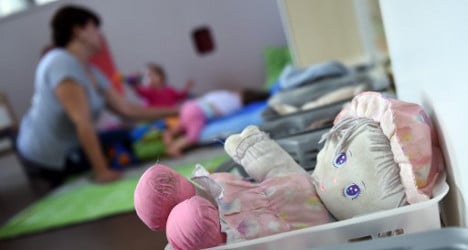In a statement on Wednesday the federal council said it wanted to reduce the cost of childcare and increase the range of childcare available.
Childcare is expensive in Switzerland, with a full-time nursery place in Geneva and Zurich costing between 13-20 percent of a family’s income, compared with just 4-6 percent in neighbouring countries, reported news agencies.
“How to reconcile family life with professional life continues to be a sizeable challenge for many parents,” said the government.
“Compared with other European countries the Swiss authorities contribute markedly less to the high cost of childcare.”
The consequence is that having both parents working is sometimes of little or no financial advantage, it added.
Neither is the childcare system adequate for parents who work irregular hours or want childcare outside of school holidays, it said.
The government’s new plan aims to remove the financial barriers for women who want to return to work, and fight against the shortage of qualified personnel in the workplace
Part of the 100 million franc pot will aim to reduce the amount parents spend on childcare by reimbursing cantons for the cost of providing increased childcare subsidies.
Cantons should also be able to oblige employers to help subsidize the childcare costs of their employees, it said.
Some of the money will also go towards financing projects aimed at increasing the range of childcare available, for example making nurseries available outside of usual working hours and increasing the amount of childcare available during school holidays as well as before and after school.
The federal government submitted its proposal to parliament on Wednesday, where it will now be debated.
Not everyone is in favour.
According to news agencies the liberal-radical party feels the initiative is too complicated, while the right-wing Swiss People’s Party (SVP) says it’s an example of the state interfering in private lives.
In a statement on Wednesday the SVP denounced the government’s desire to spend 100 million francs on such a project in the current economic climate.
The party is “shocked” by the government’s action, it said.
“On its own initiative and with no constitutional basis the government is reinforcing the Confederation’s interference in childcare issues”.




 Please whitelist us to continue reading.
Please whitelist us to continue reading.
Member comments